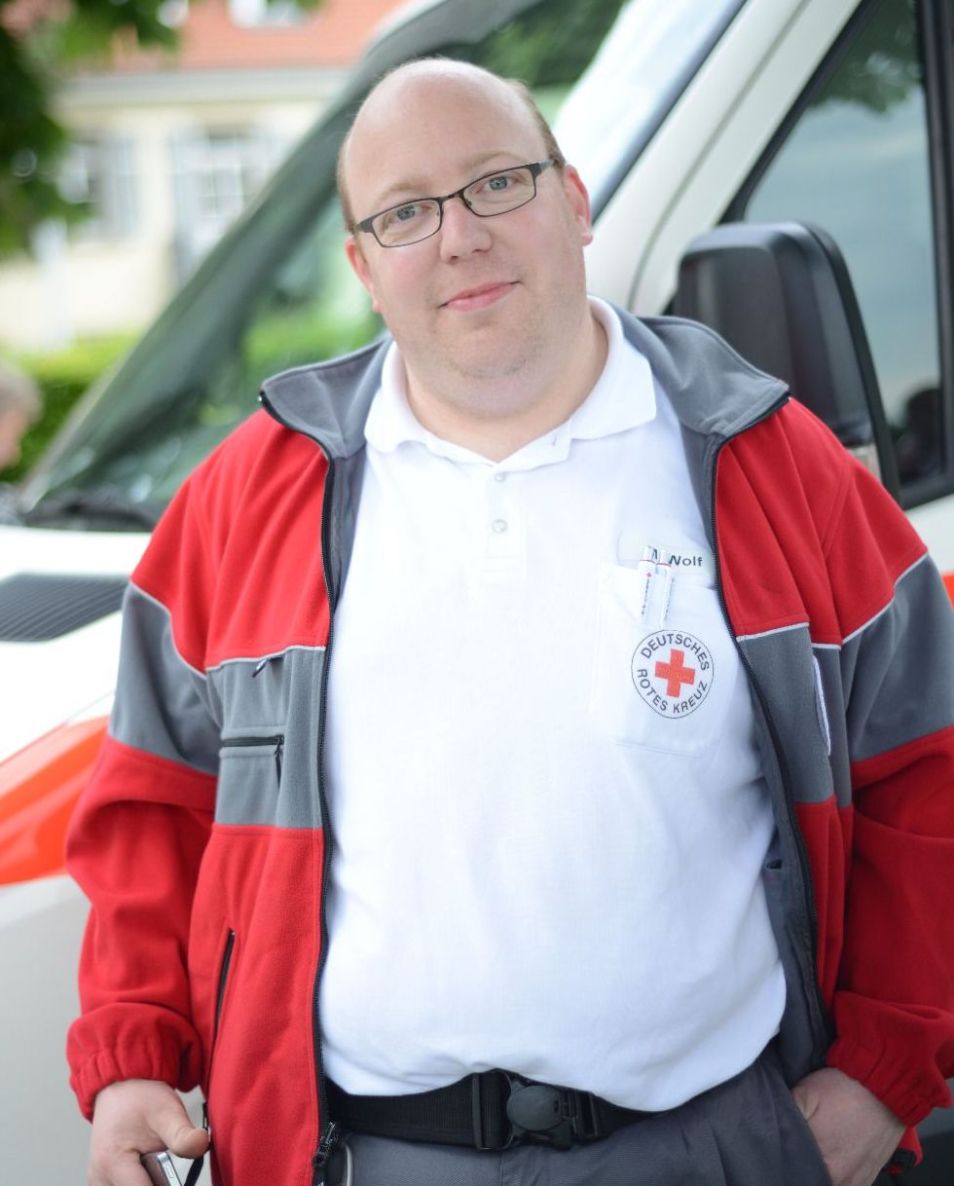MLZ is a cooperation between:
 > Technische Universität München
> Technische Universität München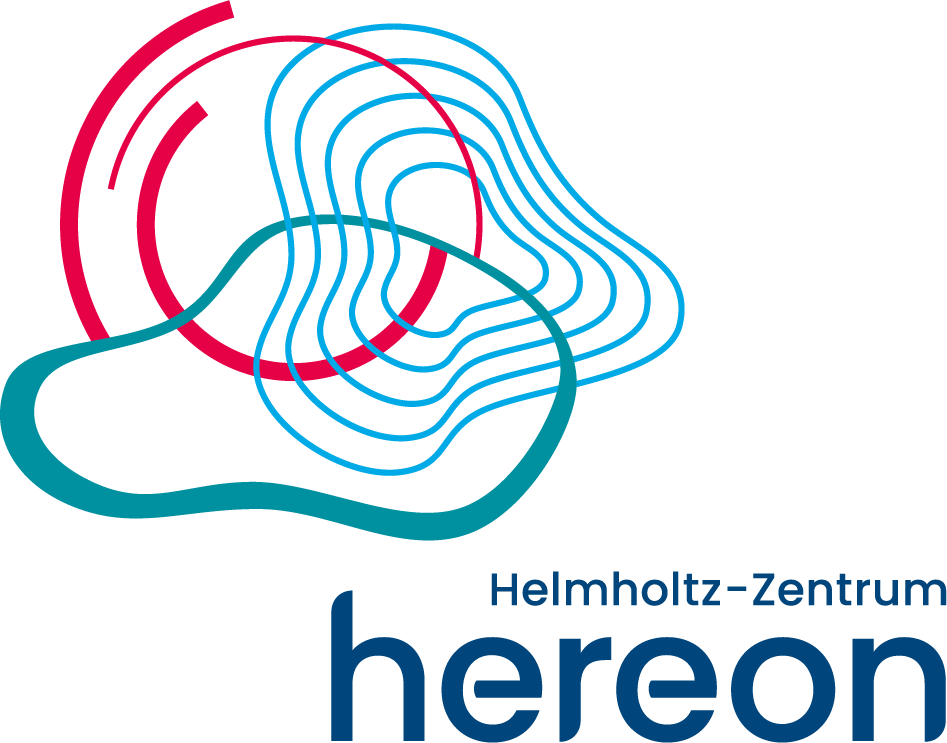 > Helmholtz-Zentrum Hereon
> Helmholtz-Zentrum Hereon
 > Forschungszentrum Jülich
> Forschungszentrum Jülich
MLZ is a member of:
 > LENS
> LENS > ERF-AISBL
> ERF-AISBL
MLZ on social media:

MLZ (eng)
Lichtenbergstr.1
85748 Garching
With blue light and siren
During the week, Dr. Marcell Wolf does research with neutrons at the Research Neutron Source Heinz Maier-Leibnitz (MLZ). On weekends he engages in volunteer work at the German Red Cross. In both cases, he is particularly able to benefit from one characteristic: his ability to remain calm in all situations. His commitment is also in demand during the Corona pandemic.
Marcell Wolf likes the unusual cases in the emergency services. He recounts a rescue from a scaffold – the patient had fallen and could no longer get off by himself. Even the fire department had to assist.
Dr. Marcell Wolf is a scientist at the Research Neutron Source Heinz Maier-Leibnitz (MLZ), where he is responsible for the TOFTOF instrument. In the field of soft matter, he is investigating the phase behaviour of liquid-liquid phase separation in protein solutions under pressure. Currently, he is also working on a “ Rapid Access Proposal “, which allows scientists to apply for prioritized and fast access to measuring times if they are conducting research on the novel coronavirus SARS-CoV-2. As instrument manager, Wolf supervises and supports the guest scientists at the instrument.
In addition to his work at the MLZ, Wolf volunteers at the Red Cross in the local associations of Freising and Ludwigsburg in the medical service and civil protection. He wanted to “do something useful”, that is why he joined the rescue service. First as a civilian service person, then as a part-time job while studying physics and now for about 10 years in voluntary service. In his old hometown of Ludwigsburg he is still involved in the board of directors and has responsibility for medical products.
The current corona pandemic also affects Marcell Wolf: If additional staff is needed, he is ready to step in. At the moment, this means for him to take over shifts on a corona hotline and coordinate appointments for drive-in tests, as well as working on the respective ward. If necessary, he is also given time off from his work at the MLZ.
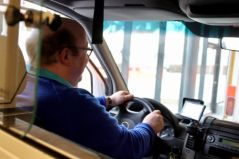
Whether at the neutron source or at the steering wheel of an ambulance: Marcell Wolf stays calm. © Veronika Aechter/FRM II
Marcell Wolf’s motivation: helping people
“You quickly lose the shyness of getting so close to strangers”, Marcell Wolf explains while showing me the case with intubation instruments, “after all, you want to help as much as you can”. Because what drives Wolf is his desire to be able to help people with his commitment. And he likes the fact that it always remains exciting: “Every emergency is different. Even routine operations rarely run the same way. Often it takes a lot of improvisation talent to be able to solve tricky situations”.
At MLZ, Wolf’s colleagues benefit from his training: Here he is the first responder when someone gets hurt. And skills from his paramedic experience also help him on the job: “In stressful situations I am calmer because I am more used to it. If an experiment doesn’t work out at first go, he can act calmly. This ability to improvise serves him well as a scientist.
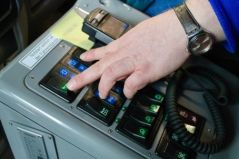
Siren and blue light: The siren may only be switched on by order of the rescue coordination centre when driving to an operation. © Veronika Aechter/FRM II
Rescue operations are often emotional
“When it comes to children, of course it quickly becomes emotional, it gets to you,” says Wolf and looks at the tiny respiratory masks in his hand. The smallest one is designed to fit an infant. All the other equipment in the ambulance is also available in the smaller children’s version. “Every paramedic also learns how to deliver a child,” explains Marcell Wolf, “I have also been called to assist with birthing.
As a driver Marcell Wolf needs strong nerves
On a trial occasion, Wolf himself was already lying on the stretcher in the ambulance: “This is a pretty shaky affair. I understand why some patients are complaining” was his conclusion.
But this knowledge also helps him when he himself is at the steering wheel of the ambulance and runs red lights with blue light and siren. This is not without risk: “You have to expect everything to happen at all times,” Wolf emphasizes. “Drivers often behave unpredictably and are overwhelmed by the situation. This means that first responders put themselves in danger on every journey. Here, too, Marcell Wolf benefits from one ability above all else: keeping calm!
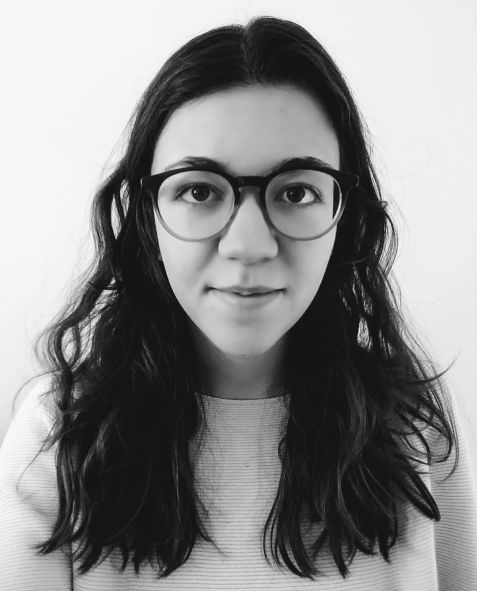
Veronika Aechter
Press & Public Relations
FRM II
MLZ is a cooperation between:
 > Technische Universität München
> Technische Universität München > Helmholtz-Zentrum Hereon
> Helmholtz-Zentrum Hereon
 > Forschungszentrum Jülich
> Forschungszentrum Jülich
MLZ is a member of:
 > LENS
> LENS > ERF-AISBL
> ERF-AISBL
MLZ on social media:



